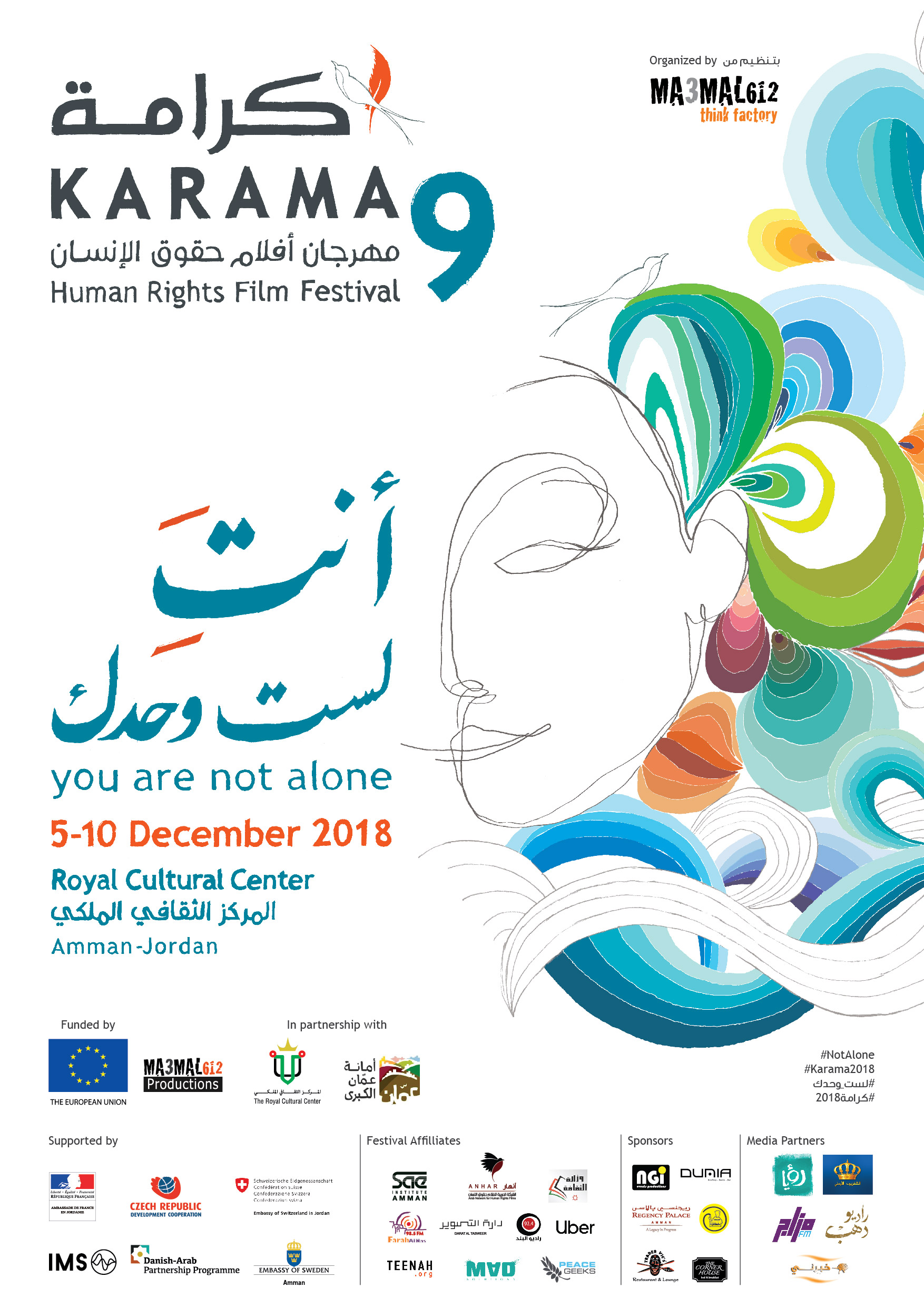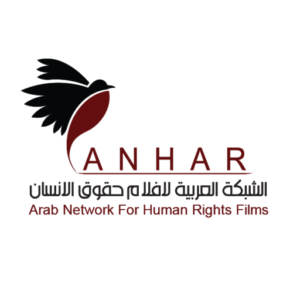Karama HRF Festival 2018 | You are not Alone
Israa Al-Radaydeh | Amman – Alghad
Because cinema is a wide space for storytelling, crossing the horizons and crossing barriers in a beautiful visual language, it is now the most powerful medium for promoting human culture and rights.
Karama Human Rights Film Festival, which ended its activities on Monday December 10, coinciding with the 70th anniversary of the Universal Declaration of Human Rights, which was adopted by the United Nations on 10 December 1948 at the Palais de Chaillot in Paris. The Universal Declaration of Human Rights is among the major international documents identified by the United Nations.
Over the course of six days, Karama presented daily performances at the Royal Cultural Center for 74 films from 25 countries, dealing with different dimensions of human rights. The official theme of the festival was “You Are Not Alone” with a great focus on women, their issues and their roles in different fields, as well as the complementary relationship between women and men.
Karama highlighted the achievements of women in various fields as a pioneers of Arab cinema, such as producers, filmmakers, actresses or professionals in the audiovisual industry.
All the films were most recent international productions, selected at Karama to be premiered in Amman. The festival hosted directors, actresses and actors, filmmakers, human rights activists, and a huge audience, eager to attend films different from those that are being screened in commercial cinemas.

The majority of the films that were screened in “Karama” toured international festivals and won international awards such as “The Day I Lost My Shadow,” which won the Venice Film Festival award, “The Borrowed Dress”, which won the best documentary film at the Silk Road Festival, and “Of Fathers and Sons” which won the Award at Sundance Film Festival.
Tunisian productions were present through several choices such as programming Tunisian films that tackle Tunisian society and the struggle and liberation of women in the Arab region, such as the opening film “Al Jaida” directed by Selma Baccar.
Winners of the Awards
The ANHAR Award, which seeks to support the best human rights in the Arab region. The winning film was “Of Fathers and Sons” by Syrian director Talal Derki, tackling Syrian conflict, and how violence is transmitted from generation to generation.
The film revolves around the story of a conservative Syrian Family; the Director was able to gain their trust and convey a holistic and just representation of the relationship between the father and sons of the family as they raise them. For 330 days he lived with them and anticipated a prolific happening. The camera follows the children, the ways in which they are nurtured by being exposed to violent scenes and military trainings, in hopes of actualizing the father’s dream of creating an Islamic Khalifate.
The Karama Feather award for Best Animation Film went to “The Pocket Man” by Ana Chubinidze and the Karama Feather award for Best Short Fiction Film went to “Return” Directed by Shahriar Pourseyyedian, revolving around honor killings. The Karama Feather award for Best Documentary Film went to the Libyan filmmaker Naziha Arebi for her film “Freedom Fields”. And the Karama Feather award for Best Fiction Film went to “The Day I Lost My Shadow” by the Syrian Director Soudade Kaadan.
The Role of Cinema and Human Rights
Human Rights films and cinema has become a lighthouse that sheds light upon the dangers human rights violations, politics, culture and linguistics. Ranging from torture and random detainments to journalistic censorship and administrative corruption, from marginalization and poverty to immigration and women rights.
The films that were screened represented the whole spectrum. Not to mention parallel events such as Q&As, round table discussions, focus groups and conferences that took place under the umbrella of Karama Human Rights Film Festival (KHRFF), that featured collaboration and intimate interactions between audiences, guests, filmmakers and activists.
KHRFF’s importance is consolidated by being the largest Human Rights Film Festival in the region with respect to the volume of films and its award giving ceremonies.
The theme of the festival, which is chosen annually, is linked to its predecessor and paves the way for following year as one integrated fabric. Each year the festival devotes a new idea, through which it sheds light on a new aspect of those violated rights, through beautiful cinematic language and intricate imagery, to be the voice of those who they represent and stand up for.
Over the Years, KHRFF has become an incubator and network for various other Festivals Starting in Jordan and spreading to create as Karama Yemen, Karama Mauritania, Karama Beirut, Karama Tunis and Karama Palestine. In this year’s edition in Jordan, they hosted the event “Window on Karama Yemen”; screening films by Yemeni film directors and writers, representing the humanitarian situations and the daily circumstances of the Yemeni People.
This Festival is proof that art through its expressive imagery continues to play its social and cultural role of spreading awareness, lobbying for advocacy and conveying messages of solidarity and shared human values of all those who suffer in the world.
Given that cinema is the starting point; the screenings created a creative weave of majestic interaction between the physiological, contextual and legalities that combined to create an open horizon for mental liberation. The image remains strong and effective and has the ability to reach the depths of the soul, for more than a word or an idea. KHRFF turned Amman, the Jordanian capital, into a meeting point for human rights activists and professionals, alongside filmmakers, cinema lovers and artists- connected by the screen.





